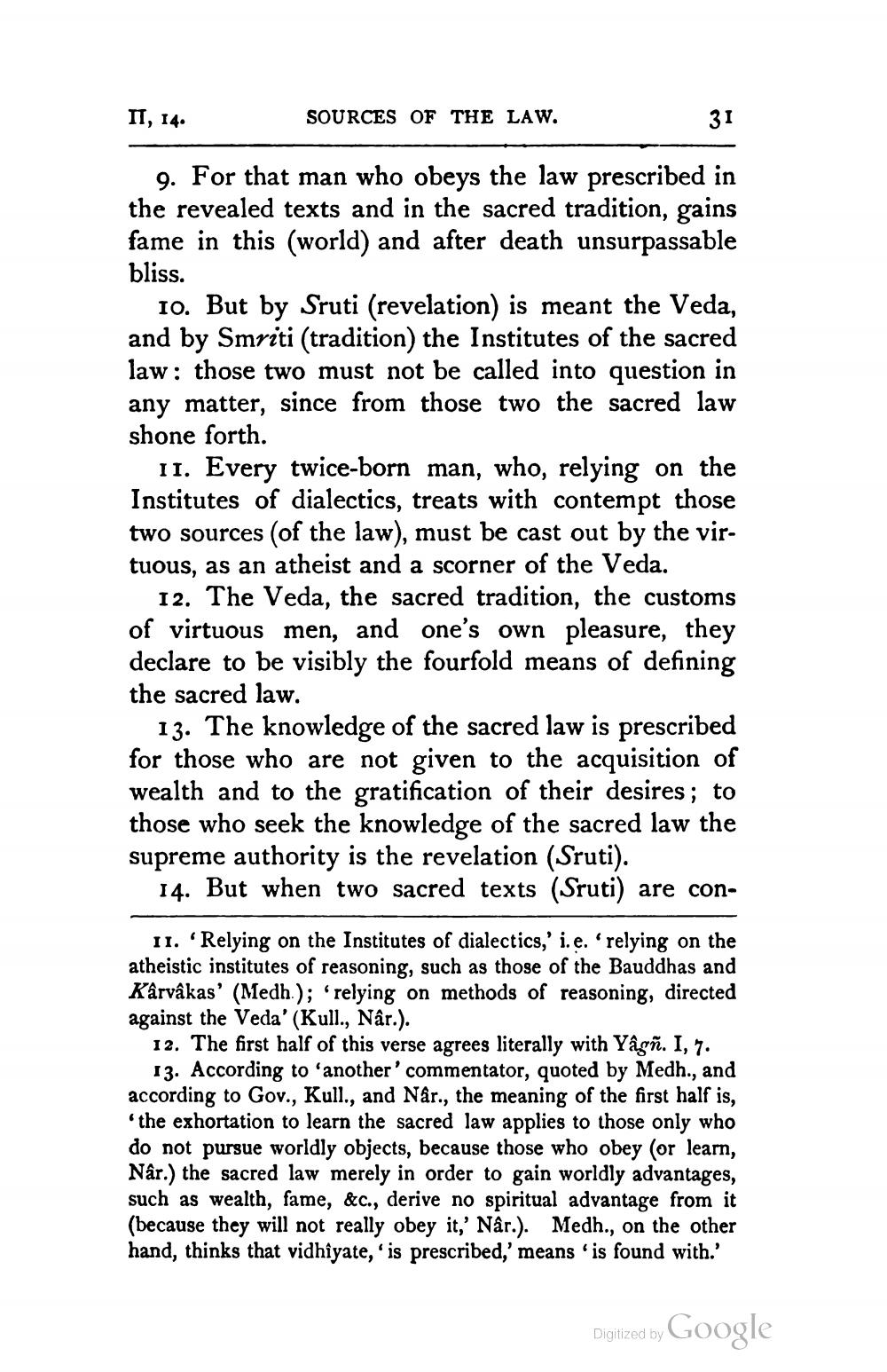________________
IT, 14.
SOURCES OF THE LAW.
31
9. For that man who obeys the law prescribed in the revealed texts and in the sacred tradition, gains fame in this (world) and after death unsurpassable bliss.
10. But by Sruti (revelation) is meant the Veda, and by Smriti (tradition) the Institutes of the sacred law: those two must not be called into question in any matter, since from those two the sacred law shone forth.
11. Every twice-born man, who, relying on the Institutes of dialectics, treats with contempt those two sources (of the law), must be cast out by the virtuous, as an atheist and a scorner of the Veda.
12. The Veda, the sacred tradition, the customs of virtuous men, and one's own pleasure, they declare to be visibly the fourfold means of defining the sacred law.
13. The knowledge of the sacred law is prescribed for those who are not given to the acquisition of wealth and to the gratification of their desires; to those who seek the knowledge of the sacred law the supreme authority is the revelation (Sruti).
14. But when two sacred texts (Sruti) are con
11. Relying on the Institutes of dialectics,' i.e. relying on the atheistic institutes of reasoning, such as those of the Bauddhas and Karvakas' (Medh); relying on methods of reasoning, directed against the Veda' (Kull., Nâr.).
12. The first half of this verse agrees literally with Yâgñ. I, 7.
13. According to 'another' commentator, quoted by Medh., and according to Gov., Kull., and Når., the meaning of the first half is, 'the exhortation to learn the sacred law applies to those only who do not pursue worldly objects, because those who obey (or leam, Nâr.) the sacred law merely in order to gain worldly advantages, such as wealth, fame, &c., derive no spiritual advantage from it (because they will not really obey it,' Når.). Medh., on the other hand, thinks that vidhiyate, is prescribed,' means 'is found with.'
Digitized by Google




